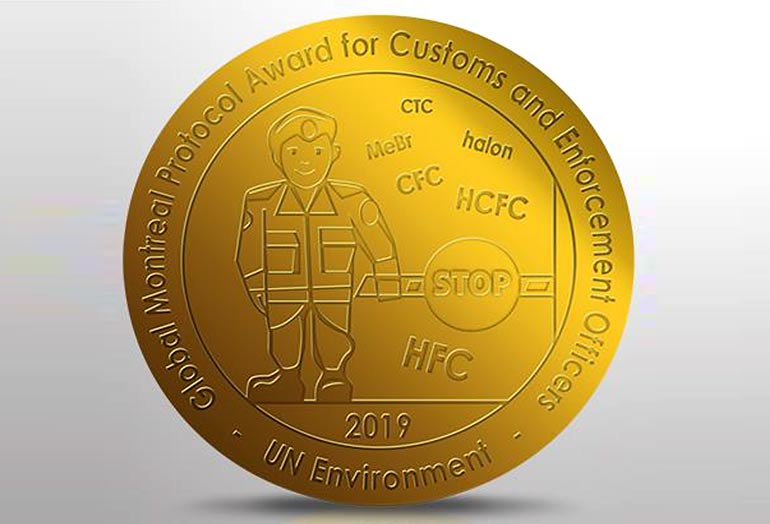Customs to receive awards for refrigerant seizures
13th October 2019
FRANCE: Customs authorities and individuals from 24 countries are to be recognised for the seizure of over 250,000kg of illegal refrigerants in this year’s Montreal Protocol Customs Award.
Organised by the UN Environment Programme’s OzonAction, the Ozone Secretariat and the World Customs Organization, the Montreal Protocol Customs Award are designed to recognise the efforts of customs and enforcement officers who play a crucial role in the fight against illegal trade.
Under the global customs award, 587 seizures were reported by 24 countries: Argentina, Armenia, Belarus, Bosnia and Herzegovina, Bulgaria, Cambodia, Costa Rica, Croatia, Dominican Republic, Georgia, Greece, Honduras, Iran, Jordan, Mongolia, Namibia, Nigeria, Pakistan, Paraguay, Poland, Rwanda, Spain, Sri Lanka and Turkey.
A total of 255,726kg of chemicals were seized, equating to nearly 20,000 cans, cylinders or containers, alongside numerous pieces of equipment. While entry to the awards is voluntary, only 24 countries out of the 196 Parties to the Montreal Protocol countries reported seizures—or 12% of Parties. This relatively low level of reporting suggests the true volume of illegal trade is much higher.

A press conference and a national award ceremony to congratulate all 45 awardees and six organisations will be held next month.
Commenting on the awards, UNEP OzonAction said: “The cases submitted for the global customs award revealed a necessity for deeper national interagency collaboration, as well as a need for cooperation at a regional level between export, transit and destination countries, in order to monitor illegal shipments of HFCs once refused by customs.”
Following the global customs award results, Poland launched an initiative to set up a European Union working group on F-gases to determine risks, identify and apply best working practices. The ongoing work of the group aims to draw up recommendations that would help in enforcement on illegal trade, develop tools for effective customs actions and training on HFCs, and promote cooperation.







